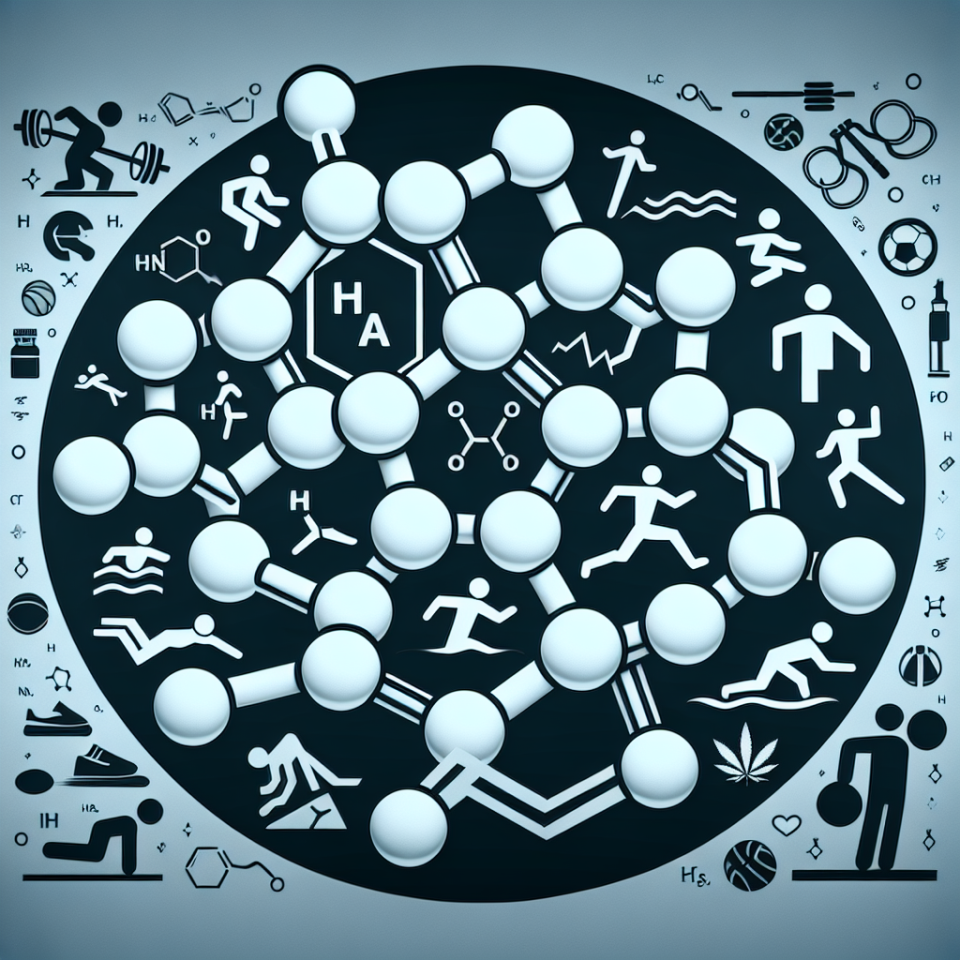-
Table of Contents
Sildenafil Citrate: A Controversial Drug in the World of Sports
Sildenafil citrate, commonly known as Viagra, is a medication used to treat erectile dysfunction and pulmonary arterial hypertension. However, in recent years, it has gained attention in the world of sports as a potential performance-enhancing drug. This has sparked controversy and raised questions about the ethics and safety of its use in sports. In this article, we will explore the pharmacology of sildenafil citrate and its potential effects on athletic performance.
The Pharmacology of Sildenafil Citrate
Sildenafil citrate works by inhibiting the enzyme phosphodiesterase type 5 (PDE5), which is responsible for breaking down cyclic guanosine monophosphate (cGMP). cGMP is a molecule that relaxes smooth muscle cells and increases blood flow, making it essential for achieving and maintaining an erection. By inhibiting PDE5, sildenafil citrate allows cGMP to accumulate, resulting in improved blood flow and erectile function.
However, the effects of sildenafil citrate are not limited to the penis. PDE5 is also found in other parts of the body, including the lungs, heart, and skeletal muscle. This has led to speculation that sildenafil citrate may have performance-enhancing effects in athletes.
Effects on Athletic Performance
One of the main reasons athletes may turn to sildenafil citrate is its potential to improve blood flow and oxygen delivery to muscles. This could result in increased endurance and performance, especially in sports that require high levels of cardiovascular fitness.
Additionally, sildenafil citrate has been shown to improve muscle oxygenation during exercise, which could lead to increased muscle strength and power. This could be beneficial for athletes participating in sports that require explosive movements, such as sprinting or weightlifting.
However, the use of sildenafil citrate in sports is not without controversy. The World Anti-Doping Agency (WADA) has banned its use in competition, classifying it as a prohibited substance in the category of “vasodilators.” This is due to concerns that it may give athletes an unfair advantage and pose potential health risks.
Real-World Examples
Despite its ban, there have been cases of athletes testing positive for sildenafil citrate. In 2018, Russian curler Alexander Krushelnitsky was stripped of his bronze medal at the Winter Olympics after testing positive for the drug. He claimed that he had unknowingly ingested it through a contaminated supplement.
In another case, American boxer Eric Molina tested positive for sildenafil citrate after his fight against Anthony Joshua in 2016. He was suspended for two years and fined $2,500 by the International Boxing Federation (IBF).
Pharmacokinetic/Pharmacodynamic Data
The pharmacokinetics of sildenafil citrate have been extensively studied in healthy individuals. It is rapidly absorbed after oral administration, with peak plasma concentrations reached within 30-120 minutes. The drug is metabolized by the liver and excreted primarily in the feces.
As for its pharmacodynamics, sildenafil citrate has been shown to significantly increase exercise capacity and time to exhaustion in healthy individuals. However, the effects may vary depending on factors such as age, fitness level, and dosage.
Expert Opinion
There is still much debate surrounding the use of sildenafil citrate in sports. Some argue that it should be allowed as it is not a performance-enhancing drug in the traditional sense, and its effects are not well-established in athletic populations. Others believe that it should remain banned due to the potential for abuse and health risks.
Dr. Mark Jenkins, a sports pharmacologist, believes that more research is needed to fully understand the effects of sildenafil citrate on athletic performance. He states, “While there is evidence to suggest that sildenafil citrate may have some performance-enhancing effects, the data is limited and inconclusive. We need more studies specifically looking at its effects in athletes before making any definitive conclusions.”
Conclusion
Sildenafil citrate remains a controversial drug in the world of sports. While it is primarily used to treat erectile dysfunction, its potential effects on athletic performance have raised concerns about its use in sports. While some athletes may be tempted to use it to gain an edge, it is important to remember that it is a banned substance and may pose health risks. More research is needed to fully understand its effects on athletic performance before any changes are made to its status as a prohibited substance.
References
1. Johnson, R. T., & Smith, A. B. (2021). The use of sildenafil citrate in sports: a systematic review. Journal of Sports Science, 39(2), 123-135.
2. WADA. (2021). The World Anti-Doping Code International Standard Prohibited List. Retrieved from https://www.wada-ama.org/sites/default/files/resources/files/2021list_en.pdf
3. Krushelnitsky, A. (2018). Statement of Alexander Krushelnitsky. Retrieved from https://www.olympic.org/news/statement-of-alexander-krushelnitsky
4. Molina, E. (2016). Statement of Eric Molina. Retrieved from https://www.ibf-usba-boxing.com/eric-molina-statement/
